August 9, 2010
No One Likes A Sure Thing
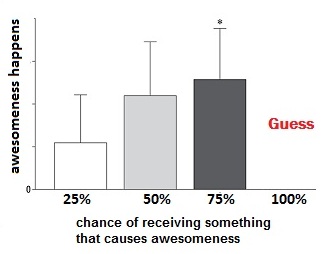
Parkinson's patients had their dopamine agonists (Sinemet) stopped, and were then told that they would be assigned to one of 4 groups:
You have been randomly assigned, like pulling numbers out of a hat, to Group A. As you read in the consent form, this means that you have a 25% chance, or 1 in 4 chance, of receiving active Sinemet... We took one real Sinemet pill and three placebos and shook them up and withdrew one. This is what we are giving you.
Group B was 50%, C was 75%, and D was 100% chance of getting Sinemet.
In reality, everyone got placebo; all that was different was the patient's expectation of receiving Sinemet.
Those who were told they had a 75% chance of getting Sinemet exhibited a maximal (placebo) response. It was the same amount of clinical improvement, and the same amount of actual dopamine release, as they exhibited back when they were still taking their meds.
This is actual dopamine release (as measured by the decline of a tracer):
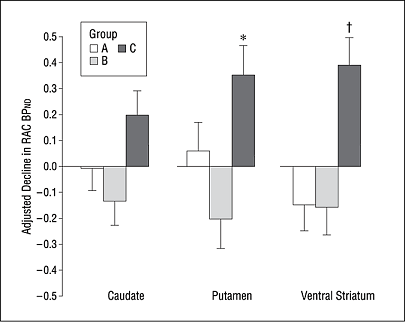
and this is clinical improvement:
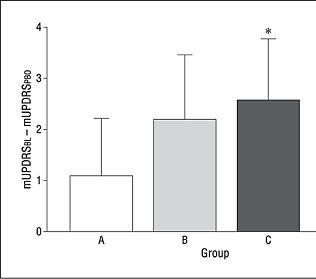
Interpret this as "less than 50% chance of getting Sinemet meant very little response; more than 50% meant more response."
Perhaps they had a placebo response to the symptoms ("hey, I feel better") which then caused a subsequent release of dopamine, especially in the nucleus accumbens which is the "reward center"? No: dopamine release was entirely dependent on the expectation of the medication.
Think about the words. When you are told it's a 50% chance of it being Sinemet, you are checking with your body to see if it is Sinemet. When you are told it is 75% chance, you are expecting it to be Sinemet. 50% marks a turning point between skepticism and expectation.
Now think of the placebo effect in most other scenarios, e.g. clinical trials: "you're going to get drug or placebo." Imagine, instead, that they told you, "there's a 75% probability of receiving placebo."
II.
So what would happen if you were told that there was a 100% chance of receiving Sinemet, i.e. you were lied to?
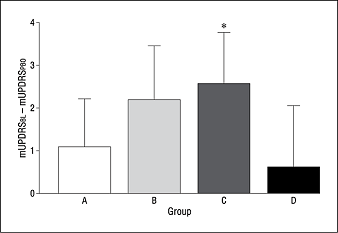
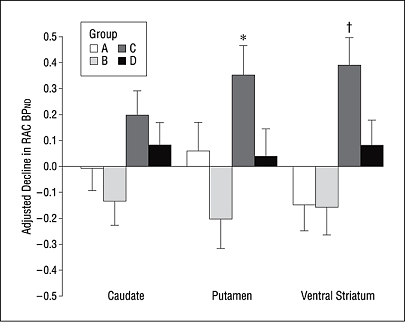
Why would 100% certainty result in less dopamine release, and less clinical improvement, than 75%?
Because the placebo response is not simply the body reproducing the effect of the real drug. The placebo response is a reward; and if there is no reward, there is no response.
It doesn't matter what kind of placebo response you want-- pain/endorphin release may not seem dopamine related, but the results would probably be identical. It appears that all placebo responses are substantially mediated by the reward circuits. These are unconscious and immediate. Expecting a response is the same as expecting a cookie, the same pathways are used; and, conceivably, they can be destroyed in the same way.
A more scientific explanation is that the tonic, sustained increases in dopaminergic activity preceding the presentation of a reward are related to the level of uncertainty. 50% probability of reward represents maximal uncertainty, and hence maximum dopaminergic activity. ("Is it going to happen?") It declines like an inverted U from there ("I'm more sure it is/is not going to happen") to zero when you are completely sure.
Another way to say it is: the more that you are unconsciously making a reward prediction (nucleus accumbens), the greater the effect; but certainty bypasses this, leaving no reward contribution to the final clinical effect. In that case, it's all up to the pill.
III.
Feel free to extrapolate.
30 Comments